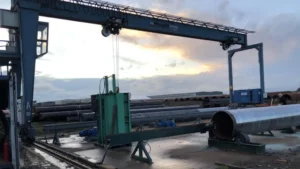Namibia’s growing oil and gas sector must urgently prioritise health, safety and environmental (HSE) standards to avoid derailing its energy ambitions, speakers have warned at the inaugural Offshore Safety Conference in Swakopmund last week.
Held in Swakopmund, the Erongo Offshore Safety Conference brought together government officials, industry leaders and regulators to confront the pressing need for a robust safety culture in Namibia’s rapidly expanding petroleum sector.
The summit comes as global oil majors, including Shell, TotalEnergies and Galp, continue to invest in exploration following significant discoveries in the Orange Basin.
According to New Era, Erongo governor Neville Andre issued a stark warning during the event, stating: “Progress without protection is an illusion, and a single lapse can destroy ecosystems and erode public trust.”
He described safety as the “oxygen of sustainable progress” and stressed that it must be treated as a foundational element of the industry, not merely a compliance requirement.
He advocated for the use of modern technologies such as drones and real-time analytics, the development of a stop-work culture and human-centred training to build a resilient safety framework.
Andre also emphasised the importance of embedding safety into every decision, noting: “We must ensure that HSE is industrialised across the sector.”
He called for stronger implementation of the 1991 Petroleum Act and greater collaboration between the mines ministry, training bodies such as the Namibia Institute of Mining and Technology (NIMT), and international partners like the International Labour Organisation.
The Namibian reported Andre as calling on all stakeholders – from government and academia to offshore workers themselves – to embrace cooperation, enforcement and innovation.
Echoing these concerns, the conference chief strategist Knowledge Ipinge called for the establishment of an independent offshore safety regulator to oversee the sector free from political or corporate interference.
He cited first-hand experience of worker anxieties during the Covid-19 pandemic, when long isolation periods, job insecurity and mental health challenges highlighted the human cost of offshore labour.
As reported in New Era, Ipinge said: “Workers often endure extended shifts, isolation and mental strain. They need more than just rules – they need protection.”
He urged the industry to move away from top-down approaches and ensure employees’ voices are central to decision-making.
He also proposed a comprehensive welfare programme for offshore workers, including mental health services, financial support and family care.
He said: “We cannot expect workers to build our economy while they suffer in silence. Safety must be about people, not just processes.”






